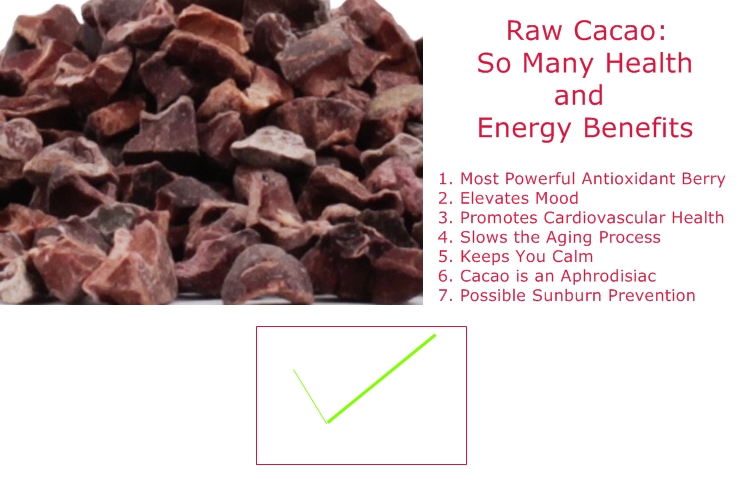Dogs have evolved to be man’s best friend for a millennia. Unlike cats, dogs have followed our directions and accepted us as their alpha. Throughout history, they’ve helped us hunt for food, kept our children safe, and fought to the death for us. There is no other animal that compares to the closeness humans have with dogs. They’ve earned a special place in our hearts.
So, what can we do to take better care of our furry children? How can we make their lives even healthier? Is there anything we can do to keep our dogs with us just a little longer?
They’ve evolved while living next to us and have been exposed to the same environments that we have. It’s natural to want to see if any health interventions that work for humans could work on our dogs. It’s no wonder, then, that essential oils have been found beneficial, not only for us—but for our dogs.
Essential Oils
Though recognized for decades as an effective health intervention in alternative medicine, essential oils have only recently gained popularity as a mainstream treatment.
Essential oils are highly concentrated substances taken from plants. These oils are thought to have health benefits for humans, like boosting immunity and aiding with mental health issues. Dogs can also reap benefits from essential oils.
What Essential Oils are Safe for Dogs?

Rosemary
Rosemary, in its essential oil form and not as the herb used for cooking, is safe to use for dogs and cats. It also has a calming smell and is a favorite of dogs.
Myrrh (Commiphora myrrha)
You might know myrrh from the Christmas story about the Three Wise Men. There’s a reason myrrh used to be known as a gift fit for kings. Myrrh has a comforting warm and earthy smell, perfect for dogs. This essential oil is safe enough to use on puppies for teething pain, and on sensitive and inflamed dog skin.
Sweet Orange
We all know the smell of oranges, and dogs love the scent, too. Its sunshiny and uplifting scent can brighten up a dog’s day.
Peppermint (Mentha piperita)
Peppermint packs a punch when it comes to dog noses, so use sparingly. It works on dogs for a number of ailments, like digestion problems, muscle injuries, sprains, and skin itching.
Lavender (Lavandula angustifolia)
Lavender is the safest and most widely used essential oil for dogs when it comes to pet products. The same lavender scent that puts us to sleep also helps do the same for dogs. Lavender is gentle on skin, contains antibacterial components, and helps to create a very relaxing environment.

Thyme (Thyme vulgaris, chemotype thujanol)
Thyme works to stimulate the immune system and has antibacterial and antiviral properties. Some dog owners use thyme after a tick bite to prevent Lyme diseases and treat the skin.
Geranium (Pelargonium graveolens)
Geranium repels ticks and can treat fungal infections of the skin. It has a pleasant smell that’s not too overwhelming for sensitive dog noses.
Valerian (Valeriana officinalis)
Commonly used for the treatment of anxiety in dogs, valerian also helps to calm restless dogs. Dog owners use this essential oil to soothe dogs during vet visits, fireworks, and thunderstorms.
Eucalyptus radiata
The eucalyptus radiata variety of eucalyptus is the best tolerated type for dogs. Its smell is soft and soothing for pets. Eucalyptus has antiviral and anti-inflammatory components and works on fleas and ticks.
Rose (Rosa damascena)
One of the most luxurious of the essential oils, rose works as an excellent flea and tick repellent (fleas dislike the smell of roses). Rose essential oils also help to clear rashes and dry skin. It also smells heavenly in a diffuser!
Lemon Oil
Lemon oil can be safe for dogs, if used correctly. Lemon is high in a particular citrus chemical that is unsafe for pet skin, especially when exposed to the sun. However, lemon can be safely used in a diffuser in well-ventilated areas.
Are oil diffusers safe for dogs?
The ASPCA Animal Poison Control Center (APCC) states that essential oils are helpful and safe for dogs—when used sparingly and carefully.

Though essential oils are thought of as “natural,” it doesn’t always mean “natural” equals “safe.” There are a few things to remember when using essential oils on dogs safely.
Essential oils, in very pure and concentrated forms, can be very toxic for pets. According to the ASPCA, dogs and cats have licked, inhaled, or touched concentrated forms of essential oils and have experienced severe illness, depending on the oil. Some oils are much more harmful than others. Keeping the concentrated form out of a pet’s reach is vital to preventing poisoning.
As we all know, dogs have an extremely sensitive sense of smell. Because essential oils are highly concentrated, their scent is many times stronger than the plant they come from. For dogs, just a couple drops of an essential oil can smell overwhelming and make them sick.
Some side effects of essential oils can include:
- Unsteadiness
- Depression
- Disorientation and confusion
- If dogs consume concentrated essential oils, they may show vomiting, diarrhea, and fatigue.
When using essential oils it’s important to consult a veterinarian, or to use oils made specifically for pets. Using an essential oil diffuser is safe, as long as it’s used for a short time period in areas with little air circulation.
If a dog accidentally consumes or inhales concentrated essential oils, contact your veterinarian or the APCC at (888) 426-4435.
Essential Oils for Dog Anxiety
Lavender, myrrh, valerian, rosemary, and orange are popular essential oils to use for anxiety. Some dogs may suffer from separation anxiety, fear of loud noises, or feel stress when riding in a car. Essential oils can help to calm their central nervous system, making them less tense and fearful.
You can use essential oils in a diffuser for short periods in well-ventilated areas. There needs to be a balance—enough oil to be effective for your dog, but not too much that the scent overwhelms their senses. You may also try mixing a few drops with some water in a small spray bottle, and spray the furniture and their bedding lightly. This provides enough for your dog to smell the oils, but not enough to harm them.
Essential Oils for Fleas/Tick Repellent on Dogs
Fleas and ticks aren’t just annoying. They can also carry diseases and make your dog miserable. If you hesitate to use chemical pesticides or medications as flea and tick treatment for your dog, then essential oils may be an effective option for you.

Fleas aren’t fond of lavender or rose smells, so the essential oils can help keep the pests away from your dog. Lavender essential oils have the added benefit of being toxic to tick eggs and provide relief to itchy skin.
Gardening buffs often plant rosemary in their yards to ward off fleas, mosquitos, and other bugs. Rosemary oil can also be used to keep fleas and ticks off of your dogs.
Cedar is also a popular essential oil to use against bugs and pests. When used in a diffuser, just the smell of cedar will kill young ticks and fleas and keep others away. Like cedar, lemongrass is another essential oil that can also be used as a flea repellent.
Essential Oils for Ear Infection/Itchy/Hot Spots/Dry Skin
A dog’s fur isn’t only about making them look cute and cuddly. Their fur serves an important purpose. It’s essential for their health, comfort, and safety. Keeping your dog’s fur lush is vital, which also means keeping their skin in good shape.

When using essential oils directly on your dog’s skin, it’s imperative that you only use safe oils in the right amounts. Skin is porous and oils can seep into the body. If the essential oil is not safe to use, it can poison your dog. The following are a list of safe essential oils that are beneficial for your dog’s skin and fur.
Chamomile oil
Chamomile oil is gentle on a dog’s skin and soothes irritated or inflamed areas.
Coconut oil
Coconut oil helps keep skin hydrated skin, smooths rough spots, and helps keep fur thick. It may also help with odor control.
Jojoba oil
Jojoba is often used in human beauty products, and it can also help your dog look great, too. This essential oil maintains a shiny coat and treats dry, itchy skin.
Lavender oil
Lavender is the go-to essential oil for a lot of problems. Not only does lavender calm dogs and keep fleas away, it also helps with odor control and keep fur shiny and thick.
Rosemary Oil
Rosemary can help condition a dog’s fur and skin. It also has the added benefit of having antimicrobial and antifungal properties, keeping your dog’s skin free of infections.
Essential Oils for Dog Odor, Smelly Dogs

You may love everything about your dog, except that dog smell. That smell finds its way into every nook and cranny of your home. It embeds itself into each fabric fiber. And once you bathe your dog, they will smell like a dog the very next day!
Essential oils are a natural way to neutralize dog odors. Many shampoos for dogs have essential oils mixed into the formula in the right ratios for safety and effectiveness. Safe essential oil sprays are also available for your dog.
The following essential oils can be used in a diffuser or spray to curb pet odors.
- Lavender
- Eucalyptus
- Lemon (not on a dog’s skin)
- Peppermint
- Rosemary
- Lemongrass
- Rose
What Essential Oils are Dangerous?
Many essential oils that are safe for humans are toxic for dogs. Be sure to stay away from these essential oils:

Tea Tree Oil
Melaleuca oil, more commonly known as tea tree oil, is unsafe for dogs. Although humans use it often for its antiviral, antibacterial, and antifungal properties, it’s toxic to dogs in high concentrations. Unfortunately, tea tree oil comes in different concentrations and dogs come in all different sizes. Trying to find the right amount for your dog can result in accidental poisoning when consumed or absorbed through the skin.
The signs of tea tree oil overdose are depression, uncontrolled gait, paralysis, vomiting, low body temperature, and skin irritation. Dogs who exhibit these symptoms and were directly exposed to tea tree oil must see a veterinarian immediately.
Some medications or shampoos for dogs contain tea tree oil. These formulas are made to be safe for dogs.
Pennyroyal
Pennyroyal is a type of mint that’s used as an insect repellent, mainly for flea infestations. However, it should never be used directly on a dog or given to a dog to consume because it is toxic. Pennyroyal can cause liver failure or parts of the liver to die off. The symptoms of toxicity in dogs are vomiting of blood, bloody diarrhea, and severe lethargy. Suspected poisoning should be reported to a veterinarian immediately.
Cinnamon
Humans use cinnamon in our desserts, coffee, and perfumes. So, you might think, “How harmful can cinnamon be?” For dogs and cats, it is toxic! Cinnamon can cause liver disease, vomiting, diarrhea, and disrupt an animal’s heart rhythm. Even in diffusers, cinnamon should be used in small amounts and in well-ventilated areas.
Wintergreen
Wintergreen is the same oil used in chewing gum and holiday candies. As a concentrated essential oil, however, wintergreen contains enough aspirin to be toxic to dogs. Aspirin, also known methyl salicylate, can cause gastrointestinal damage to dogs. It can even cause liver or kidney failure in the worst cases.
Pine Oils
Humans often use pine oils in cleaning products or massage oils. However, when dogs consume or absorb pine oils, it can cause diarrhea, vomiting, drooling, and poor motor control. Just like wintergreen, pine oils can also cause liver or kidney failure.
Other essential oils that may not be as toxic as those above, but should still not be used on dogs are:
- Birch
- Bitter almond
- Garlic oil
- Clove oil
Safe Essential Oil Use for Dogs
The American Kennel Club recommends safe and careful essential oil use. Dog owners should consult their veterinarian before using essential oils that aren’t already mixed into a pre-made commercial formula.
Dogs lick everything. And a concern with essential oils is how dogs might ingest them when placed on their fur and skin. Dogs also smell everything, and their sense of smell is powerful. Which is why essential oils should be used sparingly —drop by drop— rather than by teaspoons or cupfuls.
Essential oils also require carrier oils or water to help dilute them. So, before starting on a quest to incorporate organic essential oils into your dog’s life, it’s best to consult with a veterinarian first. Used responsibly and safely, essential oils are excellent resources to add to your dog’s care.




